Obesity is a well-known risk factor for developing hemorrhoids. The added weight puts significant pressure on the rectum and anal region, causing the blood vessels to become swollen and inflamed.
Furthermore, obesity is associated with a sedentary lifestyle and poor dietary choices, exacerbating hemorrhoidal symptoms. A diet low in fiber can cause constipation, leading to straining during bowel movements, which is a significant cause of hemorrhoids.
Obesity, on the other hand, is a medical condition in which excess body fat has accumulated to the extent that it may hurt health. It is also a global health problem, affecting over 650 million adults worldwide.
The Relationship between Obesity and Hemorrhoids:

Studies have shown a clear association between obesity and the development of hemorrhoids. Hemorrhoids are caused by increased pressure on the anal area caused by being overweight or obese. Sedentary lifestyles can also cause hemorrhoids due to obesity and constipation.
There are several risk factors associated with obesity that can lead to hemorrhoids. Risk factors include high blood pressure, diabetes, and cholesterol. Anal blood vessels and arteries may be damaged by these conditions, making hemorrhoids more likely.
Strategies for Preventing Hemorrhoids in Obese Individuals:

Hemorrhoids and obesity are often associated, but prevention strategies are effective. Maintaining a healthy weight through regular physical activity and a balanced diet is key.
In addition to a fiber-rich diet, exercise improves blood circulation, preventing hemorrhoids. Obese individuals should also avoid prolonged sitting or standing to prevent hemorrhoids from worsening.
Taking frequent breaks and engaging in light physical activities such as walking or stretching is beneficial. In addition, use gentle wipes or moist cloths to clean the anal area after bowel movements, and avoid harsh soaps or toilet paper.
These strategies can help obese individuals prevent hemorrhoids, improve their health, and reduce risk.
Hemorrhoids and Obesity: Lifestyle Modifications

Obesity contributes to hemorrhoids by increasing pressure on rectal veins. Healthy lifestyles include regular exercise and a balanced diet to prevent this condition.
Exercise helps reduce weight, which in turn reduces the pressure on the rectal veins. Constipation can irritate existing hemorrhoids or cause new ones to develop. A balanced diet with high-fiber foods prevents constipation. Drinking lots of water and avoiding processed foods can also reduce straining.
Weight Maintenance Prevents Hemorrhoids:
A healthy weight helps prevent hemorrhoids due to the pressure put on the veins around the rectal area by excess body weight. In obese individuals, hemorrhoids are more likely to develop than healthy ones.
Weight loss combined with regular exercise reduces pressure on veins, reducing the likelihood of hemorrhoids. In addition, maintaining a healthy weight reduces the risk of diabetes, heart disease, and certain cancers associated with obesity.

The Impact of Obesity on Hemorrhoid Treatment:
Obesity makes treating hemorrhoids difficult. Due to limited access to the anal area, creams or ointments can be challenging. Surgery may be required for obese individuals with hemorrhoids. Weight loss is also difficult for obese individuals due to exercise and diet changes.
However, shedding some pounds can lessen pressure on the anal area and reduce hemorrhoids. Healthy living is tough for overweight people, which puts them at higher risk. A healthy lifestyle and weight can prevent hemorrhoids from complicating treatment.
Medications

Hemorrhoids and obesity are two health issues that can be managed with medication. Anus and rectum veins become swollen and inflamed when hemorrhoids form. These symptoms can be alleviated with topical creams and ointments containing hydrocortisone, witch hazel, or lidocaine. Fiber supplements, stool softeners, and laxatives can facilitate bowel movements and prevent further irritation.
An obese person is more likely to develop hemorrhoids, among other health problems. It may also be necessary to prescribe weight loss medications in addition to a change in lifestyle.
They can suppress appetite, reduce fat absorption, or increase metabolism. Before taking these medications, it is recommended that you consult with a healthcare professional. Medications alone are insufficient to treat obesity and should be part of a larger lifestyle change.
If hemorrhoid symptoms or obesity are troubling you, talk to a healthcare professional. A healthcare provider should guide the use of medications to ensure they are safe and effective.
Obese Hemorrhoids: Early Detection & Treatment
To prevent hemorrhoids from progressing, obese individuals need early detection and treatment. Hemorrhoids are more likely to develop in obese individuals due to increased pressure on the veins.
Early detection allows surgical intervention before hemorrhoids become severe. Early treatment also reduces pain, itching, and bleeding, improving quality of life.
Physical Activity:

Physical activity's importance in managing and preventing hemorrhoids and obesity cannot be overstated. Sedentary lifestyles and poor dietary choices can cause hemorrhoids. Obesity, characterized by excessive accumulation of body fat, is also commonly associated with inactivity and unhealthy eating habits.
Regular physical activity can alleviate hemorrhoid symptoms such as painful swelling, bleeding, and discomfort. Walking, cycling, and yoga can improve blood flow, strengthen pelvic muscles, and promote bowel movements, preventing swelling and inflammation. Physical activity can also enhance the digestive system and reduce constipation, straining, and irritations that can trigger hemorrhoids.
Similarly, physical activity promotes weight loss, improves metabolism, and enhances cardiovascular health. Exercise helps maintain healthy body weight and prevents chronic diseases such as diabetes, hypertension, and heart disease. Furthermore, physical activity boosts energy levels, reduces stress, and improves mental health.
Physical activity is crucial to a healthy lifestyle, particularly for those affected by hemorrhoids and obesity. It is possible to manage symptoms, maintain health and well-being, and mitigate the risk of these conditions through regular physical activity.
Warm Water Bath

Many health conditions, including hemorrhoids and obesity, can be treated with a warm water bath. Swollen veins in the rectum or anus can cause discomfort, bleeding, and pain during bowel movements. Additionally, obesity can cause various health complications, including heart disease, diabetes, and joint problems.
A warm water bath can relieve hemorrhoid symptoms by reducing inflammation and relaxing muscles in the anal area. Warm temperatures can increase blood flow to the affected area, speeding healing and promoting tissue repair. Warm water can also help relieve anal itching and pain and improve bowel movements.
Warm water baths can promote weight loss by increasing metabolism and burning calories. As your body temperature and heart rate increase, you burn more calories when you soak in warm water. Sit in warm water for 15 minutes several times a day.
You can also engage in more physical activity and burn more calories by taking a warm water bath, which eases joint pain and stiffness.
Warm water baths can provide numerous health benefits, particularly for hemorrhoids and obesity. Reducing inflammation, promoting tissue repair, and improving metabolism can reduce symptoms and promote overall health and well-being. Consult your healthcare professional before starting any treatment, including a warm water bath.
Using Ice Packs to Reduce Swelling

In addition to hemorrhoids and obesity, ice packs reduce swelling in various conditions. It reduces inflammation and pain and limits the progression of related symptoms when applied cold.
The application of ice packs to hemorrhoids can significantly relieve discomfort and swelling. Inflammation and swelling are caused by increased pressure in the anal and rectal veins. Using cold on the affected area can reduce swelling and discomfort by constricting blood vessels.
The use of ice packs in the case of obesity can help manage symptoms of inflammation, joint pain, and swelling. Weight gain can cause inflammation and soreness in joints and tissues. Applying ice packs to affected areas temporarily relieves discomfort and prevents further inflammation.
These and other health conditions are easily managed with ice packs due to their numerous benefits and ease of application. Everyone can benefit from this simple but powerful treatment, whether through commercial ice packs or DIY home remedies.
Astringents:

Hemorrhoids and obesity are common health conditions treated with astringents. They reduce inflammation and promote healing by shrinking tissues they come in contact with. Hemorrhoids can be particularly troublesome due to swollen veins around the rectum and anus, so astringents are helpful.
One of the most common astringents used for hemorrhoids is witch hazel. Natural extracts contain tannins, which reduce inflammation and promote healing. Witch hazel reduces inflammation and discomfort associated with hemorrhoids when applied topically. Other astringents, such as aluminum acetate and Calamine lotion, can help relieve hemorrhoid symptoms.
Regarding obesity, astringents can help by reducing the absorption of fats and carbohydrates in the body. Green tea and grape seed extract have been shown to lower body weight, reduce body fat, and improve insulin resistance. If left unchecked, these substances can cause weight gain by inhibiting the absorption of dietary fats and carbohydrates.
Astringents are versatile substances that can be useful in treating various health conditions. When used properly, they can help to reduce inflammation, promote healing, and even aid in weight loss. Consider using astringents whether you're suffering from hemorrhoids or obesity. Consider trying astringents today if you are looking for a safe and effective way to improve your health!
Protectants:
Protectants for hemorrhoids and obesity share a common characteristic - inflammation. These conditions can be relieved with protectants, substances that reduce tissue inflammation.
Patients with hemorrhoids can apply protectants around their anus to prevent further irritation from fecal matter. Fruits and vegetables and antioxidants like vitamins C and E have been shown to reduce inflammation in obesity prevention.
Protectants do more than alleviate symptoms such as itching, pain, and swelling in the affected area. Protectants can also help accelerate the healing of the inflammation's root cause. To achieve optimal results, you must complement these protectants with lifestyle changes, medications, and other treatments to achieve optimal results.
Take action against inflammation! Patients may improve their overall quality of life by reducing it through protectants.

Decongestants:
Studies suggest that decongestants may benefit individuals with hemorrhoids and obesity, as well. Decongestants can reduce swelling in the rectal area and relieve hemorrhoids' unpleasant symptoms. In addition, decongestants have anti-inflammatory properties that could reduce chronic inflammation caused by obesity.
Decongestants help with more than inflammation; they boost metabolism, reduce blood sugar levels, reduce appetite, and even improve exercise performance. It's important to remember that decongestants don't cure hemorrhoids or obesity. The importance of healthy habits, including a nutritious diet and regular exercise, should not be substituted for any other.
Finally, long-term use of decongestants can elevate heart rates and blood pressure, so consult your healthcare provider before considering regular use. In individuals suffering from hemorrhoids and obesity, decongestants may reduce inflammation.
Steroids:
Steroids have been prescribed for many medical conditions and can also be used to treat hemorrhoids and obesity. Corticosteroids, for example, have anti-inflammatory effects that reduce hemorrhoid swelling and inflammation. A topical application or an oral medication for systemic relief is often used.
However, obesity is characterized by excessive accumulation of body fat, which can lead to serious health problems. Steroids in treating obesity are controversial and not recommended, except for hormonal disorders or other medical conditions.
Steroids increase muscle mass, reduce body fat, and improve fat metabolism. In addition to liver and kidney damage, mood disorders, and cardiovascular complications, some people misuse steroids for weight loss.
In treating hemorrhoids, steroids reduce inflammation and swelling, but their use in treating obesity is limited and potentially harmful. When using steroids for any medical condition, consult a medical professional and follow the prescribed dosage and instructions.
Exercise Regularly:

Exercise can help reduce body weight and maintain a healthy Body Mass Index (BMI). As a result, the rectum and lower abdomen are less stressed, which leads to hemorrhoids. Hemorrhoids are mitigated by physical activity such as brisk walking, jogging, and cycling.
Furthermore, exercise helps prevent constipation, a significant risk factor for hemorrhoids. In addition to increasing metabolism, exercise stimulates digestion, resulting in soft, well-formed stools. By reducing straining and pushing during bowel movements, hemorrhoids can be prevented.
In addition to preventing hemorrhoids, regular exercise also helps prevent obesity. A person is obese when their BMI is above the normal range, and they have excess body fat. It increases the risk of heart disease, diabetes, and hypertension.
Exercise helps burn calories, reduce body fat, and maintain a healthy BMI. Body fat is reduced as muscle mass increases. This reduces the risk of obesity and associated health problems.
The benefits of regular exercise include preventing hemorrhoids as well as obesity. Brisk walking, jogging, and cycling can help reduce body weight, prevent constipation, and maintain a healthy BMI. Exercise can improve their health and reduce their risk of developing these conditions.
Topical Anesthetics:

Topical anesthetics are here to help. Skin-numbing meds quickly relieve swollen veins and excessive body fat discomfort. Immediately apply the cream or gel to the affected area and feel relief as nerve signals are blocked.
Sprays or wipes of lidocaine, benzocaine, pramoxine, and dibucaine are popular over-the-counter options.
You should only use topical anesthetics as a short-term remedy. Extended use can lead to skin irritation, allergic reactions, or toxicity. And never apply them to open wounds, broken skin, or infected areas. If symptoms persist or worsen, see a healthcare professional for further treatment.
Eating Healthy:
When it comes to managing hemorrhoids and obesity, adopting a healthy eating plan is crucial. Eating a balanced and nutritious diet is essential to preventing and managing these conditions.
Fiber-rich foods can aid in regular bowel movements and prevent constipation, a common cause of hemorrhoids. Fiber can be found in whole grains, vegetables, fruits, and legumes. By drinking plenty of water and avoiding caffeine and alcohol, you can stay hydrated.
A healthy and balanced diet can help obesity sufferers lose weight, reducing the risk of hemorrhoids. You can achieve a healthy weight by eating fruits, vegetables, lean proteins, and healthy fats. Additionally, a well-rounded diet can reduce inflammation associated with obesity.
Overall, eating healthy is a crucial component of managing hemorrhoids and obesity. Enhancing health and well-being through a nutritious and balanced diet is possible.
Drink Plenty Of Water And Other Fluids:

Hemorrhoids and obesity are primarily treated with procedures and surgeries. Obesity refers to excess fat accumulation in the body, while hemorrhoids are swollen and inflamed veins.
For hemorrhoids, several surgical and nonsurgical procedures exist. Non-surgical treatments include increasing fiber intake, taking sitz baths, and using medicated wipes or creams. Treatments such as these manage symptoms but aren't permanent.
Surgical procedures, on the other hand, are often reserved for severe or recurrent hemorrhoids. Hemorrhoidectomy, the complete removal of hemorrhoids surgically, is a common surgical method.
Minimally invasive surgical techniques, such as rubber band ligation (injecting a chemical solution to close hemorrhoids), are becoming more popular.
Surgery can reduce the stomach size or limit calorie absorption to treat obesity. Surgery for obesity usually involves gastric bypass, adjustable gastric banding, or sleeve gastrectomy.
Gastric bypass involves reducing the stomach size and rerouting the small intestine to the newly created pouch. In this way, fewer calories are absorbed, which results in significant weight loss.
By placing an adjustable band around the upper part of the stomach, adjustable gastric banding limits the stomach's size. The Sleeve Gastrectomy creates a tube by removing a large portion of the stomach.
Surgery for hemorrhoids and obesity generally aims to reduce complications and manage symptoms. Patients should work closely with their doctors to determine the best treatment options.
Delaying Treatment Due To Obesity:

Obesity-related factors such as embarrassment and fear may delay the treatment of hemorrhoids. Thrombosis, abscess, or fistula can result from untreated hemorrhoids.
Additionally, prolonged bleeding can lead to anemia, further complicating the condition. Taking early action prevents these complications and ensures successful treatment.
Discussion Of The Potential Benefits And Risks Of These Procedures:
The risks and benefits of surgical hemorrhoid treatment are present in obese individuals. Relief from symptoms, decreased risk of recurrence, and improved quality of life are all gifts.
However, risks such as bleeding, infection, and the potential for bowel dysfunction exist. Post-operative recovery can be prolonged, requiring careful management.

The Importance of Early Detection and Treatment:
Detecting and treating hemorrhoids and obesity cannot be overemphasized, especially considering their correlation. Often caused by chronic constipation, diarrhea, or straining during bowel movements, hemorrhoids are swollen veins. Excessive body fat, on the other hand, results from poor diet and inactivity.
Research has shown a direct correlation between obesity and the prevalence of hemorrhoids. Weight increases pressure on veins, making obese individuals more susceptible to hemorrhoids. Maintaining a healthy diet is all the more important if you have hemorrhoids.
Early detection and treatment can prevent more serious health problems like fistulas and anal fissures. Without surgery, hemorrhoids can be treated through a lifestyle change or topical ointment.
Early detection and treatment of obesity can prevent heart disease, diabetes, high cholesterol, and even certain types of cancer. Obesity treatment options include diet and exercise, medication, and surgery.
It cannot be overstated how important it is to detect and treat hemorrhoids and obesity as soon as possible. Exercise and diet can greatly mitigate the risks associated with both conditions, improving overall health and quality of life.
Conclusion
Hemorrhoids can occur due to several factors, including obesity, which must not be ignored as a risk factor. It can be prevented by maintaining a healthy weight, eating fiber-rich foods, and staying active.
If you experience any symptoms, seek medical attention immediately. Detection and treatment early can speed recovery. Preventing most health concerns involves proactive measures to maintain optimal health!


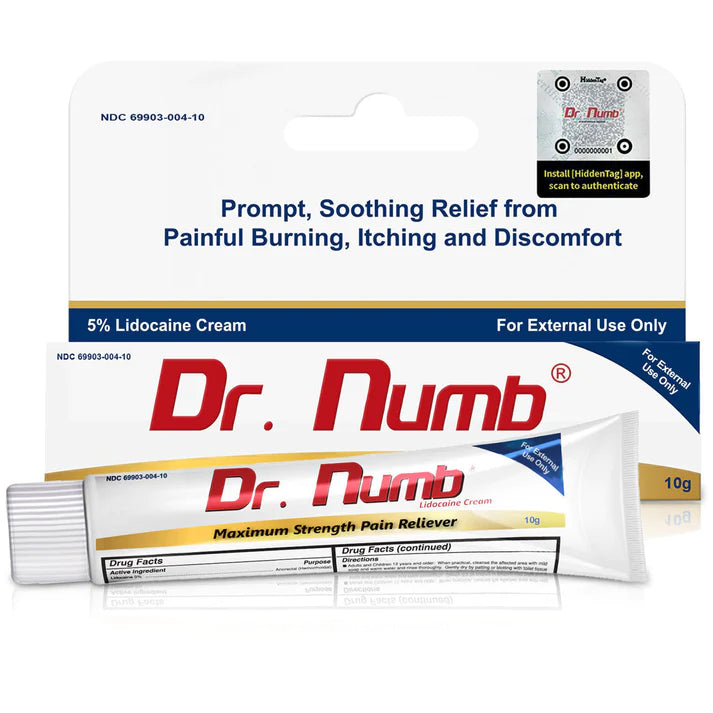




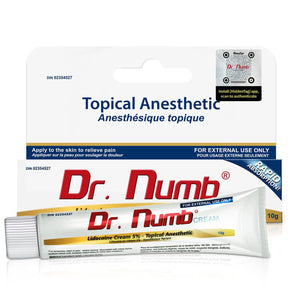
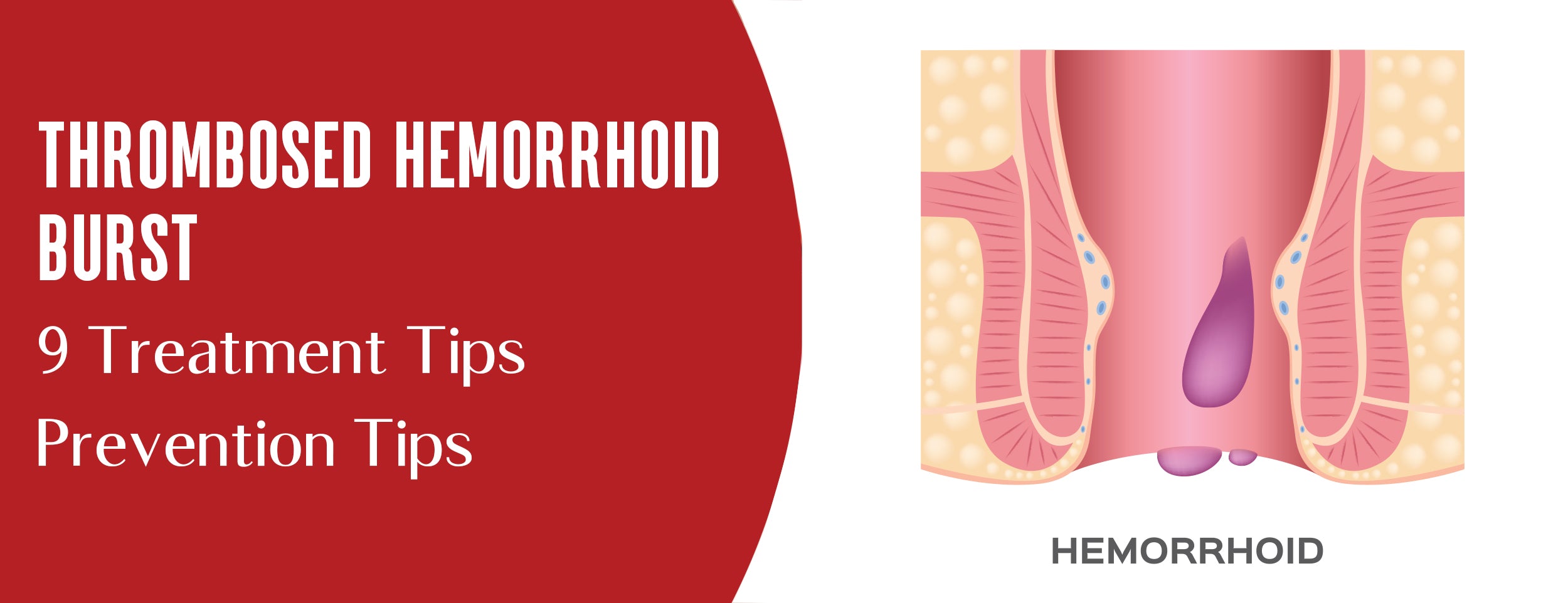
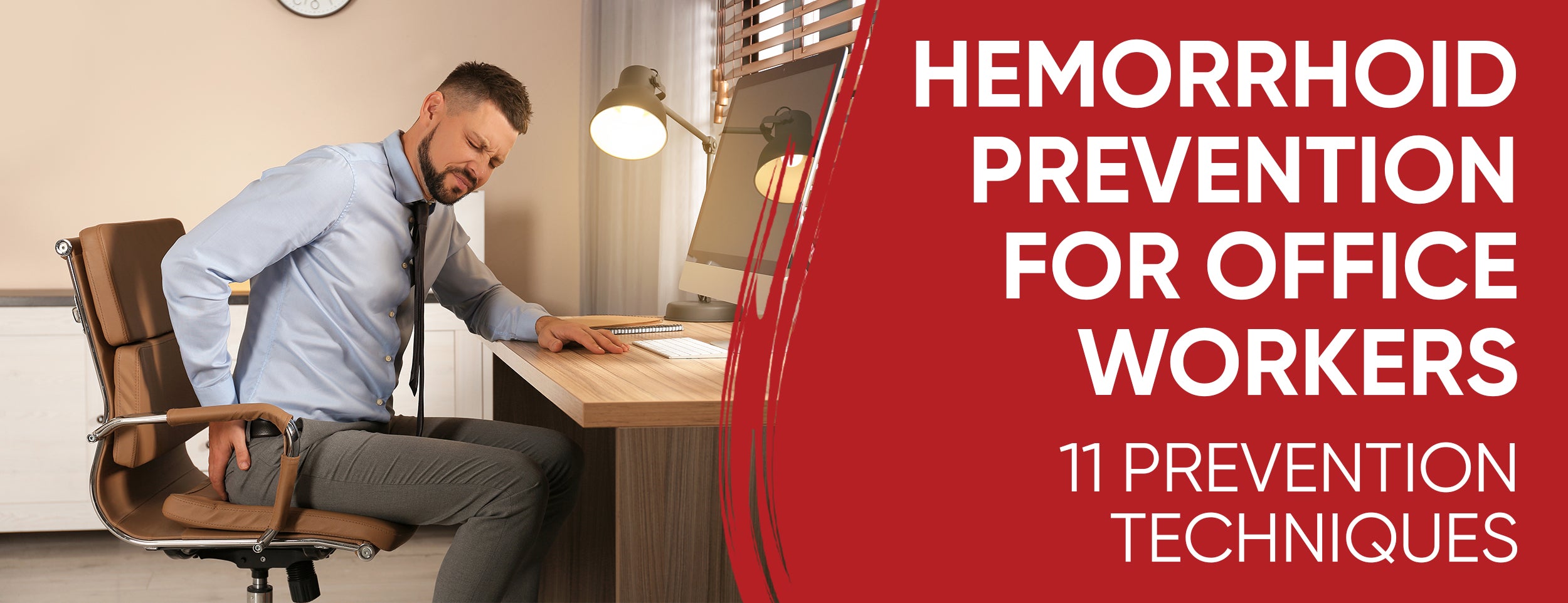
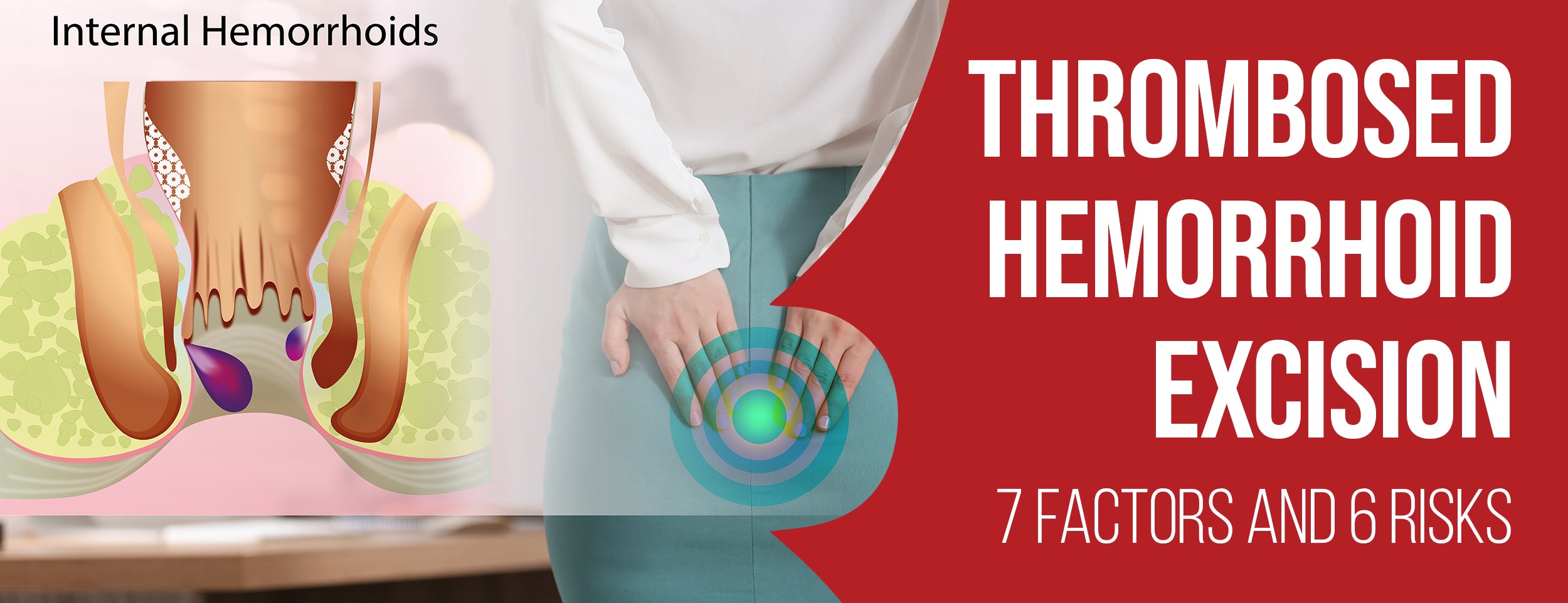
![Precautions & 6 Steps to Draining Thrombosed Hemorrhoids [DIY]](http://drnumb.ca/cdn/shop/articles/Draining_Thrombosed_Hemorrhoid_Yourself__6_Steps_8_DIY_Tips_With_Precautions.jpg?v=1713931775)

